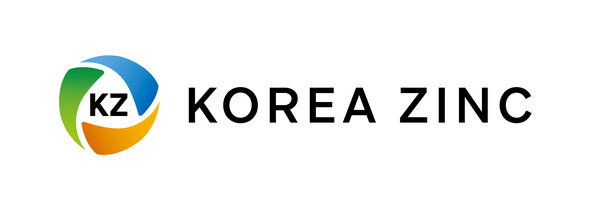 |
SEOUL, South Korea, Nov. 18, 2024 /PRNewswire/ -- Korea Zinc (KRX:010130), the world's leading non-ferrous metal smelting company, announced today that its precursor technology, a key material for secondary batteries, has been designated as "national core technology" and "national high-tech strategic technology" by the Korean government.
The precursor technology, jointly owned by Korea Zinc and its subsidiary KEMCO, has been recognized for its significant technical and economic value in both domestic and international markets, as well as its potential for industrial growth. The government's decision also acknowledges that should the technology be leaked abroad, it could have a serious negative impact on national security and the country's economic development.
With this ruling, Korea Zinc will now be able to build a foundation to establish a stable self-sufficient supply chain for precursors, a key material for secondary batteries, using entirely homegrown technology. The company will also begin implementing protective measures against overseas technology leaks in accordance with relevant laws.
The Korea Zinc technology that has been recognized as both national core technology and national high-tech strategic technology is the "technology for manufacturing and processing of cathode active material precursor with a nickel (Ni) content exceeding 80% for lithium-ion batteries." Korea Zinc submitted its application for this designation to the Ministry of Trade, Industry, and Energy in September, and after two rounds of expert evaluations, the designation was recently finalized.
According to the Ministry of Trade, Industry, and Energy, the technology is classified under the electrical and electronic sector in the national core technology category and the national high-tech strategic technology's secondary battery sector.
Through the Industrial Technology Protection Act (ITPA ) (Act on Prevention of Divulgence and Protection of Industrial Technology), the government gives national core technology designation to technologies with high technical and economic value in domestic and international markets, or those with significant growth potential in related industries that if leaked abroad, could seriously threaten national security and economic development. More than 70 technologies across sectors like semiconductors, displays, electronics, shipbuilding and nuclear energy are currently designated and managed as national core technology.
Under the National Advanced Strategic Industry Act (NASIA) (Special Measures Act on Strengthening and Protecting the Competitiveness of National High-tech Strategic Industry), technologies with significant national and economic security impact, as well as substantial economic effects in terms of exports and employment, are designated as national high-tech strategic technologies.
With this designation, Korea Zinc's technology will be subjected to strict regulations. The company plans to implement protective measures under Article 10 of ITPA and Article 14 of NASIA. Furthermore, any export of this technology, or any foreign investment involving mergers, acquisitions or joint ventures, will require approval from the Minister of Trade, Industry, and Energy, as per Article 11 of ITPA and Article12 of NASIA.
Domestic battery companies have been relying almost exclusively on China for cathode active materials (CAM), including precursors. According to the Korea Trade Insurance Corporation, as of H1 2023, 97% of domestic precursor imports came from China, raising significant concerns for economic security. In response, Korea Zinc has been accelerating efforts to establish a mass domestic production system for high-nickel precursors to secure a local supply chain for the secondary battery industry, a national high-tech strategic industry. To achieve this, the company began construction of an all-in-one nickel smelter in Ulsan, Korea through its subsidiary KEMCO last November, with trial operations scheduled for next year.
In 2022, KEMCO and LG Chem formed a joint venture called Korea Precursor Corporation (KPC). In March, for the first time in the world, KPC completed construction of a precursor production plant with process innovation applied, yielding an annual capacity of 20,000 tons. The plant successfully produced prototypes just two weeks after the test run began. Notably, it was the first in the world to apply a method that dramatically increases the process capacity of the precursor production process, including the use of the world's largest capacity reactor during test run and prototype production. This innovation is expected to allow KPC to produce higher-quality precursors more efficiently than its competitors, including Chinese companies.
Korea Zinc anticipates that its proprietary technology will shorten overall processing times, reduce processing costs and improve line efficiency, thereby enhancing productivity and quality in precursor manufacturing. The designation of this technology as national core technology is expected to bolster the nation's global competitiveness. Moreover, by diversifying the supply chain of critical minerals for domestic battery materials, Korea Zinc aims to reduce dependence on any single country and contribute to the economic security of the battery industry.